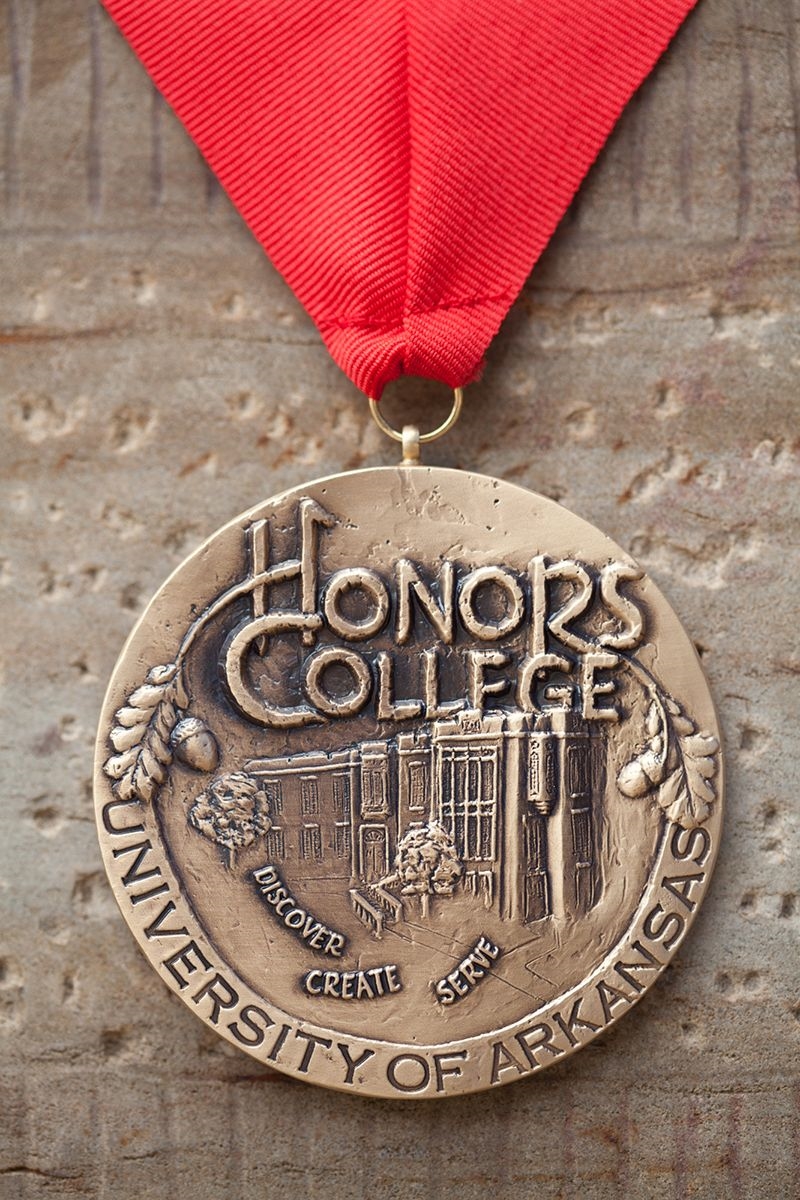FAYETTEVILLE, Ark. – The Honors College has awarded more than $85,000 in grants to 17 faculty-led research projects to promote undergraduate research and honors student researchers working in a broad range of disciplines, from engineering and physics to art and architecture. These grants will be used to purchase materials ranging from 3D printers to digital cameras capable of detecting individual fluorescent molecules.
"Thanks in large part to our faculty mentors, undergraduate students at the University of Arkansas are seeing their research featured in elite publications," said Jennie Popp, associate dean of the Honors College. "These grants help ensure that professors and students have the equipment they need for continued success, and the Honors College is proud to be able to provide funding for such a wide variety of projects."
The Faculty Equipment and Technology Grants are funded by a portion of the $300 million gift made by the Walton Family Charitable Support Foundation in 2002. The grants are designed to help clinical, tenured, and tenure-track faculty purchase specialized equipment or technology to support, advance and promote undergraduate research and honors student researchers at the University of Arkansas.
One of the most ambitious of these funded projects is a multidisciplinary study on the detection of counterfeit products such as brand-name apparel, jewelry and artwork. This project is a collaboration between students from the departments of electrical engineering, biomedical engineering, geoscience, apparel merchandising and product development, and the School of Art. The faculty overseeing the research are Jingxian Wu of the College of Engineering, Adriana Potra in the Department of Geosciences and Stephanie Kay Hubert in the Department of Apparel Merchandising and Product Development. The grant will go toward acquiring a multispectral imaging camera to facilitate the detection of counterfeits.
Other projects of note include:
Scott Beihle, Fay Jones School of Architecture and Design: Beihle's research focuses on tablet-based design iteration, and aims to develop new, streamlined workflow methods in the design thinking and iteration process through the implementation of current technology (tablets, tablet 3D scanners and software). This research should ultimately lead to increased design creativity, innovation and capacity.
Mary Savin, Dale Bumpers College of Agricultural, Food and Life Sciences: Savin is researching the efficacy of microdialysis as a method for sampling soil compounds without damaging the soil matrix. Successful microdialysis could potentially revolutionize our understanding of a plant's nutrient availability.
Yong Wang, J. William Fulbright College of Arts and Sciences: Wang's project, which uses an advanced imaging technique called super-resolution fluorescence microscopy, will result in a quantitative understanding of the antimicrobial mechanism of silver at the molecular level, which was previously inaccessible. Findings from this research are expected to lead to medical and therapeutic benefits for fighting antibiotic-resistant bacteria.
"All of the applications this year were very strong; it was hard to select just 17 projects," Popp said.
Faculty Equipment and Technology Grants are awarded annually; the Honors College will begin accepting applications in August 2018 for a Sept. 15 deadline.
Topics
Contacts
Samantha Kirby, editor
Honors College
479-575-7678,
